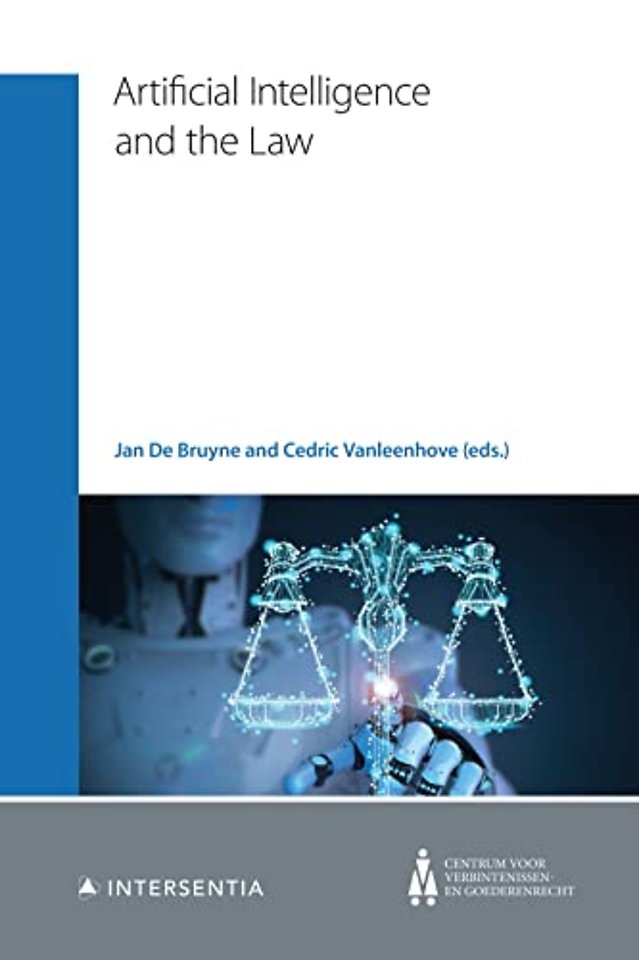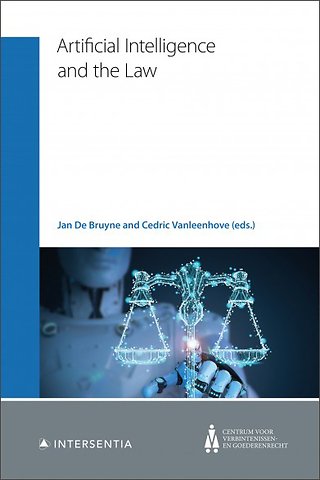Artificial Intelligence and the Law
A Belgian Perspective
Samenvatting
In this comprehensive book, scholars critically examine how AI systems may impact Belgian law. It contains contributions on consumer protection, contract law, liability, data protection, procedural law, insurance, health, intellectual property, arbitration, lethal autonomous weapons, tax law, employment law and ethics.
Artificial intelligence (AI) is becoming more increasingly prevalent in our daily social and professional lives. Although AI systems and robots bring many benefits, they present several may affect the legal and regulatory framework.
In this comprehensive book, scholars critically examine how AI systems may impact Belgian law. It contains contributions on consumer protection, contract law, liability, data protection, procedural law, insurance, health, intellectual property, arbitration, lethal autonomous weapons, tax law, employment law and ethics. While specific topics of Belgian private and public law are thoroughly addressed, the book also provides a general overview of a number of regulatory and ethical AI evolutions and tendencies in the European Union. Therefore, it is a must-read for legal scholars, practitioners and government officials as well as for anyone with an interest in law and AI.
Specificaties
Inhoudsopgave
Chapter 1. Basic Concepts of AI for Legal Scholars (p. 1)
Chapter 2. Different Models of Innovation and Their Relation to Law (p. 23)
Chapter 3. Setting the Scene: On AI Ethics and Regulation (p. 49)
Ellen Wauters
Chapter 4. Quantitative Legal Prediction: the Future of Dispute Resolution? (p. 73)
Matthias Van Der Haegen
Chapter 5. AI Arbitrators … ‘Does Not Compute’ (p. 101)
Chapter 6. AI through a Human Rights Lens. The Role of Human Rights in Fulfilling AI’s Potential (p. 123)
Chapter 7. Killer Robots: Lethal Autonomous Weapons and International Law (p. 151)
Chapter 8. AI and Data Protection: the Case of Smart Home Assistants (p. 173)
Eva Lievens
Chapter 9. AI and IP: a Tale of Two Acronyms (p. 207)
Chapter 10. Tax and Robots (p. 241)
Chapter 11. Robotisation and Labour Law. The Dark Factory: the Dark Side of Work? (p. 285)
Chapter 12. The Hypothesis of Technological Unemployment Caused by AI-Driven Automation and its Impact on Social Security Law (p. 317)
Chapter 13. AI in Belgian Contract Law: Disruptive Challenge or Business as Usual? (p. 335)
Chapter 14. Tort Law and Damage Caused by AI Systems (p. 359)
Jan De Bruyne
Chapter 15. Insurance Underwriting on the Basis of Telematics: Segmentation and Profiling (p. 405)
Chapter 16. AI and Creditworthiness Assessments: the Tale of Credit Scoring and Consumer Protection. A Story with a Happy Ending? (p. 429)
Chapter 17. AI and the Consumer (p. 461)
Chapter 18. Robots and AI in the Healthcare Sector: Potential Existing Legal Safeguards Against a(n) (Un)justified Fear for ‘Dehumanisation’ of the Physician-Patient Relationship (p. 487)
Anderen die dit boek kochten, kochten ook
Net verschenen
Rubrieken
- aanbestedingsrecht
- aansprakelijkheids- en verzekeringsrecht
- accountancy
- algemeen juridisch
- arbeidsrecht
- bank- en effectenrecht
- bestuursrecht
- bouwrecht
- burgerlijk recht en procesrecht
- europees-internationaal recht
- fiscaal recht
- gezondheidsrecht
- insolventierecht
- intellectuele eigendom en ict-recht
- management
- mens en maatschappij
- milieu- en omgevingsrecht
- notarieel recht
- ondernemingsrecht
- pensioenrecht
- personen- en familierecht
- sociale zekerheidsrecht
- staatsrecht
- strafrecht en criminologie
- vastgoed- en huurrecht
- vreemdelingenrecht







